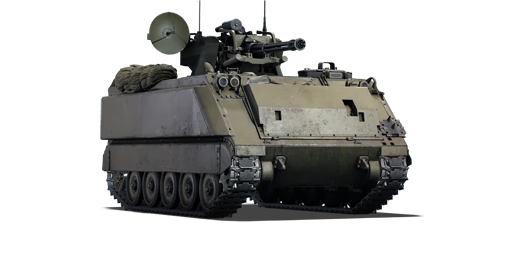



The US short-range air defence in the early stages of the Vietnam War consisted of the M42 Dusters, however the fast-paced nature of fighter jets meant that the low rate of fire the 40 mm Bofors provided was no longer sufficient. To improve on this, the 20 mm Vulcan cannon used on American jets was utilized as the basis of a new short-range air defence gun, modified into the M168 gun. Installed onto the common M113 chassis with a tracking radar, the design became known as the M163 Vulcan Air Defense System (VADS). The M163 remained in use with the US military until replaced with systems that utilized the FIM-92 Stinger like the Avenger.
Introduced in Update 1.63 "Desert Hunters", the M163 provides the necessary short-range air defense capability for the US tech tree. While not as capable nor able to reach out the distance like the larger systems like Gepard, Chieftain Marksman, or ZSU-23-4, the M163 does benefit from a very high rate of fire Vulcan armament. Due to the limitations, M163 players may find themselves driving rather close to the front-lines to provide the protection to allies and hit approaching aircraft, so extra care must be taken to not go so far in that an enemy tank will spot the M163. However, when the M163 sends out its tracer load of 20 mm towards the target, it can prove an intimidating sight to the enemies.
| Belt | Belt filling | Armor penetration (mm) at a distance: | |||||
|---|---|---|---|---|---|---|---|
| 10 m | 100 m | 500 m | 1000 m | 1500 m | 2000 m | ||
| AP-I/HEI-T/API-T | 40 | 36 | 22 | 12 | 6 | 3 | |
| HEI-T/HEF-I/API-T/HEF-I | 40 | 36 | 22 | 12 | 6 | 3 | |
| AP-I/API-T/HEF-I/API-T | 40 | 36 | 22 | 12 | 6 | 3 | |












Mobility | |
|---|---|
Protection |
|---|
Firepower | |
|---|---|